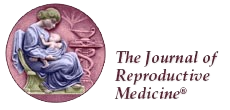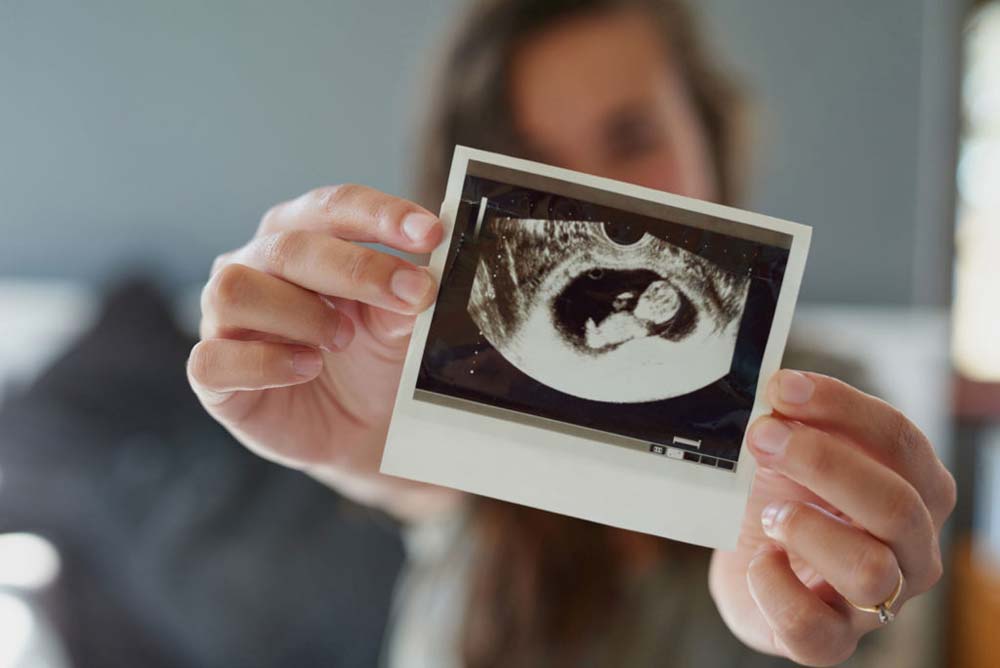Why are you still suffering from Endometriosis?
Diagnose and Treat Endometriosis With Dr. Amos E. Madanes.





Excessively painful periods? Bleeding between periods? Painful bowel movements or urination? Painful intercourse? Infertility?
Time Matters. Get Tested Now.
One in 10 women in the United States suffer from endometriosis. Many asymptomatic women discover they have endometriosis only after they have trouble conceiving. Treatments for Endometriosis are most successful in early stages.

Excessively painful periods caused by endometriosis
Endometriosis causes excessively painful periods primarily due to the presence of endometrial-like tissue outside the uterus. During the menstrual cycle, this tissue reacts to hormonal changes, leading to inflammation, scarring, and the formation of adhesions. The pain arises from these processes and can be severe.
Return to normal periods through treatment for Endometriosis with Dr. Amos E. Madanes

Bleeding between periods caused by endometriosis
Elevated levels of androgens (male hormones) in women with PCOS can disrupt the balance of reproductive hormones. This hormonal imbalance can interfere with the maturation of eggs in the ovaries and the regular development of the uterine lining, making it challenging for a fertilized egg to implant.
Wear that white dress whenever you want!

Painful bowel movements caused by endometriosis
Endometriosis can cause painful bowel movements due to the presence of endometrial-like tissue outside the uterus. When this tissue, which typically lines the inside of the uterus, implants itself on or around the bowel or rectum, it can lead to various symptoms, including pain during bowel movements.
Stop normalizing your pain. Get Treatment for Endometriosis with Dr. Amos E. Madanes
Your Future Family Depends on Working With The Best
The first ever pregnancy in the United States to result from a non-surgical intra-tubal insemination procedure was achieved by Dr. Amos E. Madanes in December 1989. The incredible results of his technique has been brining new hope to couples for the last three and a half decades.
Escape the grip of endometriosis and find hope in a future free from chronic pain and uncertainty. Treating your Endometriosis can be the first step in a successful pregnancy or in a pain free life.
Women with Endometriosis face increased difficulty in getting pregnancy
For decades Dr. Amos E. Madanes has helped hundreds of women with endometriosis become mothers.
At Midwest Fertility Center we know that you don’t want to let endometriosis stand the way of your life, or the life of your future child. In order to live the life that you want you need to be healthy. The problem is that endometriosis already disrupts your life in so many ways. Do you have excessively painful periods? Bleeding between periods? Painful bowel movements or urination? Painful intercourse? Infertility? These challenges cause physical and emotional pain and can make you feel helpless, especially when trying to get pregnant. At Midwest Fertility Center we believe that every woman should have the opportunity to be healthy and live their full life, including becoming a mother. We understand the medical appointments and treatments can be scary which is why we work hard to make your endometriosis consultation as comfortable and friendly as possible. Here’s how we do it together:
- Schedule an Endometriosis Consultation
- Share your challenges and goals
- Let us set you on a plan to feel better, and if applicable, achieve your fertility goals.
What are you waiting for? Why live with the pain? Schedule an Endometriosis Consultation today.

Endometriosis Treatment with Dr. Amos E. Madanes works to alleviate the pain, bleeding, and infertility caused by Endometriosis by addressing the underlying causes and managing symptoms. While each treatment plan is unique to your needs and circumstances, here are some methods that may be deployed in your journey to health or fertility.
Endometriosis Treatment Journey
When considering how to diagnose and treat Endometriosis we know that cost and transparent pricing is an important factor, especially if you are on a fertility journey. If you have insurance, our team will also work with you and your insurance provider to ensure all fertility benefits are received. Questions about financing? Call us at 800-244-0212.
Endometriosis Diagnosis
Get Answers
The information you need to make the most informed decision about your possible Endometriosis diagnosis and treatment.
- Diagnosing Endometriosis early is critical.
- Utilize advanced diagnostic techniques
- Clear Treatment Options
- Supportive Environment
- Informed Decision-Making
Endometriosis Treatment
Comprehensive Endometriosis Care
Treat your Endometriosis with personalized and supportive care.
Holistic Care Approach
Personalized Treatment Plans
Supportive Environment
Mental Health Support
Supportive Environment
Empowerment Through Education
Endometriosis Treatment for Pregnancy
Endometriosis Treatment on the Road To Fertility.
- Integrated Care Journey: Seamlessly transition from targeted endometriosis treatment to fertility-focused interventions, creating a cohesive and well-coordinated approach.
- Fertility Optimization: Receive advanced fertility interventions as part of the comprehensive treatment plan, optimizing the chances of conception for individuals with endometriosis.
- Empowering Reproductive Health: Navigate the intersection of endometriosis and fertility with confidence, equipped with the knowledge and resources needed to make informed decisions about your reproductive health.
Understanding endometriosis and its potential impact on health is crucial and we take the time to educate you about the condition, its symptoms, and the available treatment options. This empowers you to make an informed decisions about your care. We believe in a collaborative relationship with our patients and work to establishing a collaborative and open relationship with healthcare providers is important. We want you to feel heard, understood, and actively involved in decisions about your care. Schedule an endometriosis consultation.
While endometriosis is a common condition, we believe that women living with endometriosis deserve personalized and individualized treatment plans. Endometriosis can manifest differently in each person, and a one-size-fits-all approach may not be as effective. Each consultation will start with your medical history and symptom assessment. Dr. Amos E. Madanes will inquire about your menstrual history, symptoms, and any pain or discomfort you may be experiencing, especially during menstruation or sexual activity.
Endometriosis is a multifaceted condition that can involve both pain and fertility challenges. We work with you to design a comprehensive approach that addresses the various aspects of endometriosis rather than focusing solely on one symptom. Schedule an Endometriosis consultation.
We incorporate the following elements into our diagnosis of endometriosis:
Physical Examination: A pelvic exam may be conducted to check for abnormalities, tenderness, or the presence of masses that could be indicative of endometriosis.
Imaging Studies: While imaging studies like ultrasounds and MRIs can identify some endometriotic lesions or cysts, they are not always conclusive for diagnosis. However, they may be used to rule out other conditions.
Laparoscopy: The most definitive method for diagnosing endometriosis is laparoscopy. During this minimally invasive surgical procedure, a thin, lighted tube (laparoscope) is inserted through a small incision in the abdomen. The surgeon can visually inspect the pelvic organs and take tissue samples (biopsies) for confirmation
For those trying to conceive, fertility support is often a priority. We support women seeking to optimizing fertility, addressing ovulatory issues, and exploring fertility treatment options if needed. Schedule an endometriosis consultation.
Discover the possibilities of living pain free.
- Comprehensive Diagnosis: Utilize advanced diagnostic techniques, including laparoscopy, to provide a thorough and accurate assessment of potential endometriosis.
- Expert Consultation: Access experienced healthcare professionals who specialize in endometriosis for personalized insights and guidance tailored to your unique symptoms and concerns.
- Clear Treatment Options: Receive clear and concise information about available treatment options, empowering you to make informed decisions about managing and alleviating endometriosis symptoms.
- Supportive Environment: Navigate your journey with a compassionate and supportive team that understands the challenges associated with endometriosis, offering both medical expertise and emotional support.
- Informed Decision-Making: Gain the knowledge needed to actively participate in your healthcare decisions, ensuring that you are equipped to make choices that align with your goals and well-being.


Endometriosis is a common gynecological disorder that affects an estimated 10 percent of women of reproductive age in the United States. Medical researchers remain uncertain of the precise cause of endometriosis, though progress continues to be made in the areas of diagnosis and treatment. While endometriosis most commonly affects women in their 20s and 30s, the disease can be found in women of all ages. The primary symptoms of endometriosis are severe discomfort during menstruation and sexual intercourse, chronic pelvic pain, and infertility.
Our fertility specialists are expertly trained in diagnosing and treating endometriosis symptoms. Please contact Midwest Fertility Center right away if you believe you might be suffering from this condition – the advanced treatment options we offer can provide you with relief and hope.
Endometriosis: A Definition
During menstruation, the lining of the uterus, known as the endometrium, is shed. Endometriosis occurs when the endometrium begins to develop outside of the uterus, on the fallopian tubes, ovaries, and other organs in the pelvic region, causing serious complications.
The endometrial tissue that is growing outside of the uterus continues to respond to the hormones released during the menstrual cycle. This means that each month, the endometrial tissue outside of the uterus builds up, breaks down, and bleeds. The body reacts to this internal bleeding by surrounding the endometrial tissue with scar tissue. Over time, this scar tissue builds up, resulting in the chronic pain experienced by many endometriosis sufferers.
For some women, scar tissue can develop around the ovaries and fallopian tubes, which may block both the release of an oocyte and its passage through the fallopian tubes into the uterus, thereby preventing pregnancy. Although pain is an indicator of the presence of endometriosis, the level of pain experienced does not directly correlate to the extent of the condition. Some women do not experience any pain, yet they have moderate to severe endometriosis; others have terrible pain, but have only minimal endometrial growths. This is why it is so essential for patients to get an accurate diagnosis of the disease.
We have highly trained doctors who specialize in treating endometriosis symptoms at our Chicago and Northwest Indiana clinics. If you suffer from chronic pelvic pain and have been unable to get pregnant, we recommend that you contact Midwest Fertility Center to arrange a consultation with a member of our team as soon as possible.
Diagnosing Endometriosis
While severe pain during menstruation and sexual intercourse can be an indication that endometrial growths are present, one of the most accurate methods of detecting endometriosis is through diagnostic laparoscopy performed at one of our Chicago or Northwest Indiana centers.
Laparoscopy is a minor surgical procedure in which a tiny camera is placed through an incision in the abdomen, allowing the surgeon to clearly view the pelvic and abdominal organs and check for endometrial growths. Knowing the extent of a patient’s endometriosis is important for creating an appropriate and effective treatment strategy.
During laparoscopy, the physician may chose to surgically remove endometrial lesions. Another treatment option is the administration of Gonadotropin-Releasing Hormone Agonists (GnRHa), which can be performed in conjunction with surgical intervention or on its own.
GnRHa Therapy
GnRH, short for Gonadotropin-Releasing Hormone, stimulates and regulates the release of follicle-stimulating hormone (FSH) and luteinizing hormone (LH), two pituitary hormones that are essential for reproduction. FSH catalyzes the maturation of the follicles to produce an oocyte; a surge in LH initiates ovulation.
GnRHa therapy is a non-surgical treatment method that uses doses of Gonadotropin-Releasing Hormone Agonists to help lower estrogen levels in the body. By lowering estrogen levels, GnRHa therapy decreases the size of endometrial growths, providing relief from the symptoms associated with the condition. If the pain improves, GnRHa therapy can be continued for a full six months.
